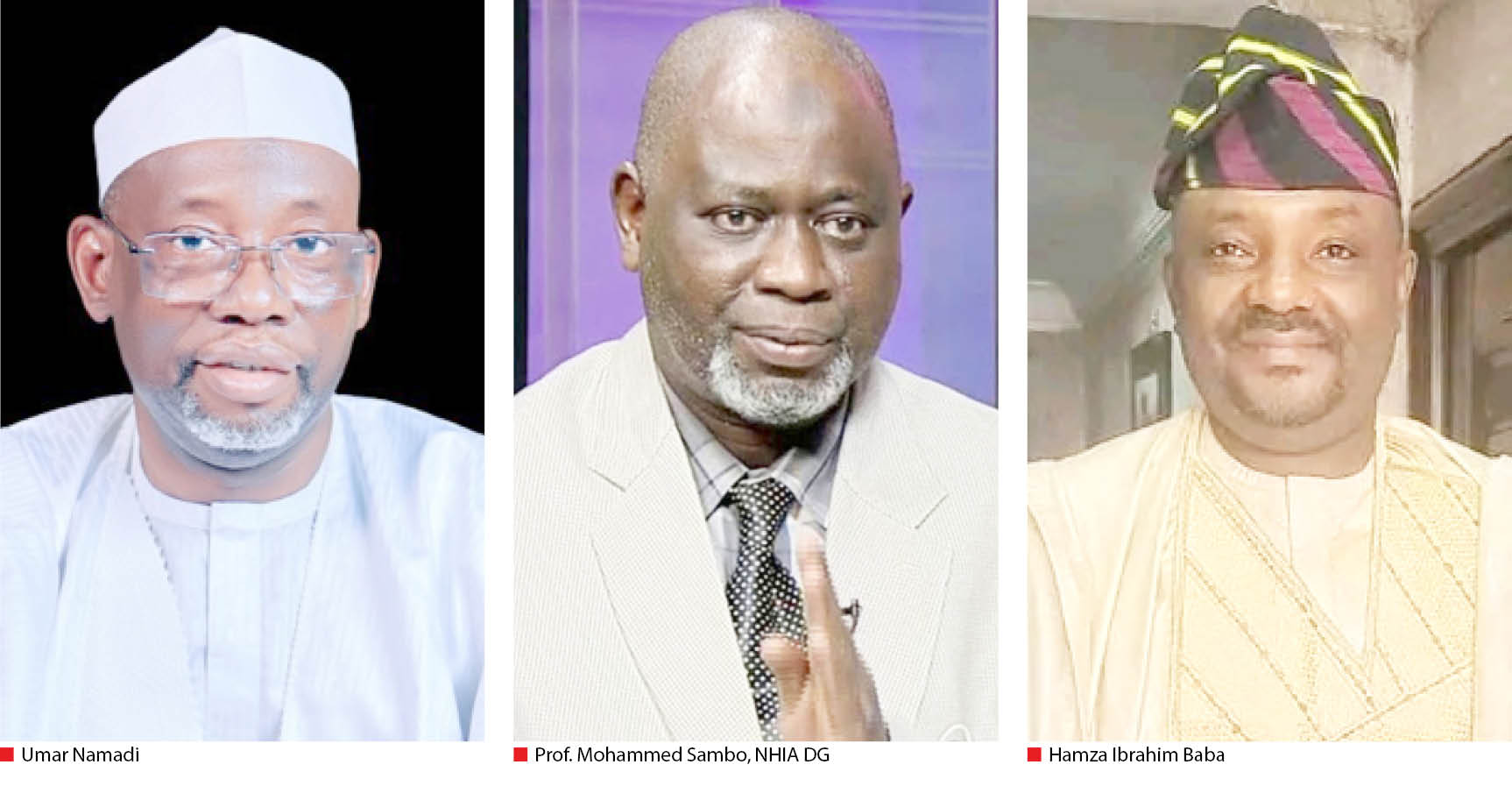Stakeholders in the healthcare financing sector have advocated for concerted effort to find a lasting and sustainable framework in the healthcare sector while promoting the adoption of global best practices in the country’s healthcare coverage.
Converged during the monthly talk series of Nigeria Muslim Forum United Kingdom (NMFUK)—a UK-registered charity organization, the stakeholders including the National Health Insurance Authority, the governor of Jigawa State and healthcare experts, spoke extensively on the theme: “Healthcare Financing in Nigeria: The role of the Government and the private sector.”
Daily Trust Saturday reports that in May 2022, the National Health Insurance Authority Bill was signed into law, making health insurance mandatory for all citizens and legal residents in a bid to achieve universal coverage.
A survey conducted recently by the NOI Polls revealed that only 17 percent of the country’s population has health insurance coverage in Nigeria while according to Dataphyte, only three percent of Nigerians are covered with 97 percent not covered in any kind of health insurance.
FG investigates failed cataract surgeries at Kaduna National Eye Centre
Insecurity: Over 23,000 Nigerians still missing – FG
In his paper presentation at the talk series, the Director-General and Chief Executive Officer of the National Health Insurance Authority (NHIA), Professor Nasiru Muhammad Sambo, elaborated on the manner of healthcare financing in Nigeria for years.
He pointed out that there are many models and frameworks but attainment of the targets and goals of the health system remains a mirage without robust healthcare financing mechanism in the country.
He said concerns about healthcare financing are due to insufficient resources, uncoordinated expenditure, public sector inefficiency and waste, as well as limited financial risk protection, absence of comprehensive financing strategy, poor knowledge and application of new policy instruments aimed at improving healthcare financing and weak monitoring and evaluation.
“Over the years, the government has financed healthcare through various mechanisms which include; general tax revenues, deficit financing, user fees, donor financing, health insurance (public and private), earmarked taxes, PTF, MDGs, SURE-P, BNCPF, grant loans, philanthropist and community financing.
“Nigeria needs to appreciate the importance of the health system in national development, the various HCF options available, develop and review the national HCF policy, enhance coordination and accountability across all levels and reposition NHIA to accelerate the attainment of Universal Health Coverage,” he said.
He further highlighted that healthcare financing is a complex concept that involves different mechanisms and actors which requires strategic, purposeful, and sustained efforts to be realized with regards to the government’s role in healthcare which spans policy creation, fund allocation, access assurance, regulation and public health promotion while the private sector contributes to healthcare financing through insurance, technology support, research, investments, and diverse healthcare related offerings.
Governor Umar Namadi of Jigawa State, who was the Guest Speaker and Chairman of the occasion, lamented how Nigeria is still lagging behind in healthcare financing.
“Healthcare is very complex; however, it is very important to go about it. For more than 30 years, we have not reached anywhere in terms of health coverage. We need to go back to the drawing board and bring out ways on how best to go about it,” the governor said.
He added that it is now mandatory according to the NHIA Act “and if it is so, one has to pay for someone because not everybody can afford it. Government needs to intervene and that is the implication of taking it as mandatory.
“Secondly, there are so many means to advance this. In Nigeria, the informal sector is the largest sector but we are still in the formal sector for the last 30 years, which I think is very low. Stakeholders need to look into it because it’s beyond what we are just discussing.
“Abuja declaration of 15 percent is implementable because I could remember in my state, we were not where we were supposed to be. There are issues and I am sure so many states are meeting up with the Abuja declaration but the question is, are we there? We are not. So, there is a need for authorities to go back to the drawing board and checkmate this.”
Governor Namadi, however, noted that with the speed at which the country is going about health coverage, “we have a long way to go and the driver is supposed to be the health insurance agency that must look into it. There are so many ways to go about it without disturbing anybody.
“Let’s look at maybe one percent per second from telecommunications companies, it is going to be a huge amount of money and can be used to finance (health insurance coverage) for the informal sector. Generally, what is important is: for us to make progress in health financing in Nigeria, we need to find a sustainable means of financing health care.”
Earlier in his opening address, a member of the Board of Trustees of NMFUK, Dr Falalu Danwata, recalled that in previous meetings, the Forum had discussed a wide range of issues regarding healthcare.
“We are hopeful that whatever is being discussed here will go a long way in reaching and being beneficial to the masses. We are aware that when someone falls sick these days, it is not easy to take care of that person especially when it comes to finances. However, the sanitation of the environment also goes a long way in determining one’s healthy living,” he said.
On his part, Hamza Ibrahim Baba, the Head of Business Development of NNPC HMO, lamented how the country is down in the global ranking index while the health coverage still battles with issues surrounding maternal mortality, TB, HIV and AIDS, among others, adding that, “If you look at Nigeria compared to other countries like Ghana, Kenya, Rwanda, we’ll see that our health coverage is very poor.”
The Executive Secretary of Jigawa State Contributory Healthcare Agency (JICHMA), Dr Ibrahim Kazaure, pointed out that the agency in Jigawa is a strong, dynamic and responsive agency that is committed to achieving Universal Health Coverage for all residents and indigenes of the state.
He added that despite the challenges, the agency is trying to accelerate the achievement of universal coverage through effective mobilization, pooling of resources and strategic purchasing of qualitative and affordable healthcare services.
Others who spoke are the Amir, NMFUK London chapter, Sheik Amir Abdul Razak Ibrahim and Suleiman Ibrahim who was the moderator.

 Join Daily Trust WhatsApp Community For Quick Access To News and Happenings Around You.
Join Daily Trust WhatsApp Community For Quick Access To News and Happenings Around You.

